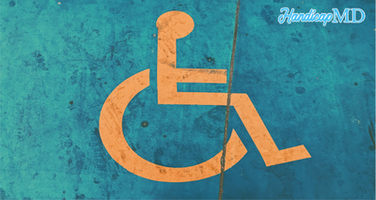
Unraveling the Link: Can Severity of Cardiovascular Disease Qualify You for a Disabled Parking Permit?
Introduction
Cardiovascular disease (CVD) is a broad term used to describe a range of diseases that affect the heart and blood vessels. It is notorious for its potential to significantly hamper the daily lives of those it afflicts. Specifically, when cardiovascular disease limitations are classified in severity as Class III or Class IV according to standards set by the American Heart Association, the impact on an individual’s life can be profound, potentially qualifying them for a Disabled Parking Permit.
Understanding Cardiovascular Disease
Cardiovascular disease encompasses a variety of conditions, including coronary artery disease, heart failure, and arrhythmias. It often results from the accumulation of fatty plaques in one's arteries—a condition known as atherosclerosis—and can lead to severe complications such as heart attacks and strokes. Managing life with cardiovascular disease can be challenging, but understanding the disease and its ramifications is the first step toward living a balanced and healthier life.
Classifications by the American Heart Association
Brief Overview
Cardiovascular disease is a multifaceted medical condition with multiple facets and dimensions, usually marked by disorders of the heart and blood vessels. Understanding Cardiovascular Disease involves delving into the mechanisms, prevention strategies, and management tactics that can be adopted to live a balanced and healthier life despite the presence of this disease.
The American Heart Association (AHA) has established a system to classify cardiovascular disease limitations in terms of severity. Class III and Class IV are considered severe, with Class III involving marked limitations in activity due to symptoms, even during less-than-ordinary activity. Class IV indicates an inability to carry on any physical activity without discomfort, with symptoms experienced even at rest. These classifications play a pivotal role in determining the level of disability an individual experiences and their eligibility for accommodations such as Disabled Parking Permits.
What is Atherosclerosis?
Atherosclerosis is a pivotal component in understanding cardiovascular disease. It is characterized by the accumulation of fatty plaques within the arteries, leading to reduced or blocked blood flow, thereby increasing the risk of severe complications such as heart attacks and strokes.
Understanding the Types of Cardiovascular Disease
Coronary Artery Disease
Coronary artery disease is a prevalent form of cardiovascular disease, primarily caused by the narrowing or blockage of the coronary arteries, leading to decreased blood flow to the heart muscle. This can result in chest pain and potentially more serious conditions like heart attacks.
Heart Failure
Heart failure is a condition where the heart can't pump blood effectively to meet the body's needs. This inefficiency can be due to structural heart damage or functional impairments, affecting individuals' daily life and overall well-being.
Arrhythmias
Arrhythmias refer to irregular heartbeats which can be too fast, too slow, or irregular. Understanding the different kinds of arrhythmias and their implications is crucial in managing cardiovascular disease effectively.
Digging Deeper into Atherosclerosis
Causes and Risk Factors
Several factors can cause atherosclerosis including high blood pressure, high cholesterol levels, smoking, and diabetes. Knowing these risk factors is essential for preventive measures and managing cardiovascular health.
Symptoms and Diagnosis
The symptoms of atherosclerosis can be variable, ranging from chest pain to shortness of breath. Accurate diagnosis often involves various tests and evaluations to assess the severity and decide the optimal treatment approach.
Heart Healthy Living
Lifestyle Changes for a Healthy Heart
Living a heart-healthy life involves adopting lifestyle changes such as regular exercise, balanced nutrition, and stress management. These changes can significantly reduce the risk of developing cardiovascular disease or manage existing conditions effectively.
Exercise and Cardiovascular Health
Regular physical activity is paramount in maintaining cardiovascular health. It helps in managing weight, reducing blood pressure, and improving overall heart function.
Importance of a Balanced Diet
Consuming a balanced diet with the right proportion of nutrients is crucial. It can help in managing body weight, cholesterol levels, and blood pressure, thereby reducing the risk of cardiovascular disease.
Medication and Treatment Options
Medications for Cardiovascular Disease
Various medications are available to treat cardiovascular disease. These can help in managing symptoms, improving heart function, and reducing the risk of complications.
Surgical Procedures and Interventions
In some cases, surgical interventions may be necessary to treat cardiovascular disease. These can include bypass surgery, angioplasty, and stent placement, which can help in improving blood flow to the heart.
Living with Cardiovascular Disease
Managing Stress and Emotional Health
Managing stress and maintaining emotional health are essential for individuals living with cardiovascular disease. Stress management techniques and counseling can play a vital role in improving quality of life.
Regular Health Check-ups and Monitoring
Regular health check-ups and continuous monitoring are vital in managing cardiovascular disease. These can help in early detection of any complications and adjustments in treatment plans as necessary.
Support and Counseling
Having a strong support system and seeking counseling can be beneficial for individuals with cardiovascular disease. It can help in dealing with the emotional aspects and challenges of living with the disease.
Understanding Cardiovascular Disease
The Role of Genetics and Family History
Genetics and family history can play a significant role in the risk of developing cardiovascular disease. Understanding this can help in assessing risk and adopting preventive strategies early on.
Advances in Research and Treatment
Continuous research and advancements in treatment options are paving the way for more effective management of cardiovascular disease. These include new medications, procedures, and lifestyle modification strategies.
Preventive Strategies
The Significance of Regular Exercise
Regular exercise is a cornerstone in preventing cardiovascular disease. It helps in maintaining heart health, managing weight, and reducing stress.
Healthy Eating Habits
Adopting healthy eating habits is another crucial preventive strategy. It involves consuming a balanced diet rich in fruits, vegetables, lean proteins, and healthy fats to maintain cardiovascular health.
Importance of Regular Check-ups
Regular check-ups are paramount in early detection and management of cardiovascular disease. They enable timely interventions and modifications in lifestyle and treatment plans when necessary.
Complications and Prognosis
Potential Complications
Cardiovascular disease can lead to various complications, including heart attacks, strokes, and heart failure. Understanding these complications is crucial for managing the disease effectively.
Prognosis and Life Expectancy
The prognosis and life expectancy for individuals with cardiovascular disease can vary. It largely depends on the type and severity of the disease, as well as the effectiveness of management strategies adopted.
Link Between Severity and Disability
Class III and Class IV cardiovascular diseases are debilitating. The limitations imposed by these classes are substantial, impacting mobility and overall quality of life. The disability resulting from such severe classifications can necessitate accommodations and modifications in various aspects of life, including the provision of a disabled Parking Permit, to aid in mobility and access to facilities.
Criteria for a Disabled Parking Permit
Obtaining a Disabled Parking Permit involves meeting specific criteria set by local authorities. Typically, individuals with Class III or Class IV cardiovascular disease must provide medical documentation verifying their condition and its severity. The permit can offer considerable benefits, such as the ability to park closer to building entrances, facilitating easier access to services and amenities.
FAQs
What is the significance of Class III and Class IV classifications in cardiovascular disease?
- These classifications represent the severe limitations experienced by individuals due to cardiovascular disease, affecting their mobility and quality of life.
How can a Disabled Parking Permit aid individuals with severe cardiovascular disease?
- It allows individuals to park in designated spaces that are typically closer to building entrances, reducing the distance they need to walk and thereby lessening physical stress.
What is the application process for obtaining a Disabled Parking Permit?
- The process involves submitting medical documentation verifying the severity of the condition, filling out the necessary application forms, and meeting the criteria set by local authorities.
Can lifestyle changes aid in managing Class III and Class IV cardiovascular disease?
- Yes, adopting a healthier lifestyle, including a balanced diet, regular exercise, and stress management, can help in managing symptoms and improving overall well-being.
Are there legal protections available for individuals with severe cardiovascular disease?
- Yes, individuals with disabilities due to severe cardiovascular disease are protected under various laws that ensure their rights to accommodations and equal opportunities.
Is regular monitoring essential for individuals with Class III and Class IV cardiovascular disease?
- Absolutely, regular check-ups and monitoring are crucial for managing the condition effectively and preventing further complications.
Conclusion
The journey of understanding and managing severe cardiovascular disease can be arduous. Class III and Class IV classifications signify substantial limitations that necessitate considerable lifestyle modifications and accommodations. The provision of a Disabled Parking Permit is one such accommodation that can significantly ease the lives of those afflicted, enabling them to maintain a degree of mobility and independence. A holistic approach, encompassing lifestyle changes, regular monitoring, and awareness, can help individuals with severe cardiovascular disease lead more balanced and fulfilling lives.
.png)






